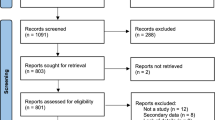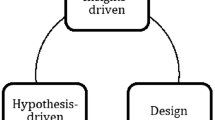Abstract
The field of Human-Robot Interaction (HRI) is progressively maturing into a distinct discipline with its own research practices and traditions. Aiming to support this development, we analyzed how ethical conduct was reported and discussed in HRI research involving human participants. A literature study of 73 papers from three major HRI publication outlets was performed. The analysis considered how often the following five principles of ethical conduct were reported: ethical board approval, informed consent, data protection and privacy, deception, and debriefing. These five principles were selected as they belong to all major and relevant ethical guidelines for the HRI field. The results show that overall, ethical conduct is rarely reported, with four out of five principles mentioned in less than one third of all papers. The most frequently mentioned aspect was informed consent, which was reported in 49% of the articles. In this work, we aim to stimulate increased acknowledgment and discussion of ethical conduct reporting within the HRI field.
Access this chapter
Tax calculation will be finalised at checkout
Purchases are for personal use only
Similar content being viewed by others
References
Dautenhahn, K.: Socially intelligent robots: dimensions of human-robot interaction. Philos. Trans. Roy. Soc. B Biol. Sci. 362(1480), 679–704 (2007)
Lindblom, J., Andreasson, R.: Current challenges for UX evaluation of human-robot interaction. In: Schlick, C., Trzcieliński, S. (eds.) Advances in Ergonomics of Manufacturing: Managing the Enterprise of the Future, pp. 267–277. Springer, Cham (2016). https://doi.org/10.1007/978-3-319-41697-7_24
Baxter, P., Kennedy, J., Senft, E., Lemaignan, S., Belpaeme, T.: From characterising three years of HRI to methodology and reporting recommendations. In: The Eleventh ACM/IEEE International Conference on Human Robot Interaction, pp. 391–398. IEEE Press (2016)
Milgram, S.: Behavioral study of obedience. Psychol. Sci. Public Interest 67(4), 371–378 (1963)
Haney, C., Banks, C., Zimbardo, P.: Study of prisoners and guards in a simulated prison. Naval Res. Rev. 26(9), 1–17 (1973)
Weiten, W.: Psychology: Themes and Variations. Cengage Learning (2007)
American Psychological Association: Ethical Principles of Psychologists and Code of Conduct. American Psychological Association. https://www.apa.org/ethics/code
European Commission: Ethics in Social Science and Humanities. European Commission. https://ec.europa.eu/info/sites/info/files/6._h2020_ethics-soc-science-humanities_en.pdf
World Medical Association: Declaration of Helsinki. World Medical Association. https://www.wma.net/policies-post/wma-declaration-of-helsinki-ethical-principles-for-medical-research-involving-human-subjects/
European Union: General Data Protection Regulation. EU. https://gdpr-info.eu
ACM/IEEE International Conference on Human-Robot Interaction. https://dl.acm.org/conference/hri
IEEE International Conference on Robot and Human Interactive Communication (RO-MAN). https://www.ieee-ras.org/conferences-workshops/financially-co-sponsored/ro-man
ACM Transactions on Human-Robot Interaction. https://dl.acm.org/journal/thri
Oates, B.J.: Researching Information Systems and Computing. Sage (2005)
Riek, L., Howard, D.: A code of ethics for the human-robot interaction profession. In: Proceedings of We Robot (2014)
Oliveira, R., et al.: Friends or foes? Socioemotional support and gaze behaviors in mixed groups of humans and robots. In: Proceedings of the 2018 ACM/IEEE International Conference on Human-Robot Interaction, pp. 279–288. ACM (2018)
Rea, D.J., Young, J.E.: It’s all in your head: using priming to shape an operator’s perceptions and behavior during teleoperation. In: Proceedings of the 2018 ACM/IEEE International Conference on Human Robot Interaction, pp. 32–40. ACM (2018)
Schroter, S., Plowman, R., Hutchings, A., Gonzalez. A.: Reporting ethics committee approval and patient consent by study design in five general medical journals. J. Med. Ethics 32(12), 718–723 (2006)
Matthias, A.: Robot lies in health care: when is deception morally permissible? Kennedy Inst. Ethics J. 25(2), 169–162 (2015)
Acknowledgements
Special thanks to Oskar MacGregor for his valuable insight on proper ethical conduct. We would also like to thank Erik Lagerstedt and Kajsa Nalin for their support and help on parts of the analysis of the literature study.
Author information
Authors and Affiliations
Corresponding author
Editor information
Editors and Affiliations
Rights and permissions
Copyright information
© 2021 The Author(s), under exclusive license to Springer Nature Switzerland AG
About this paper
Cite this paper
Rosén, J., Lindblom, J., Billing, E. (2021). Reporting of Ethical Conduct in Human-Robot Interaction Research. In: Zallio, M., Raymundo Ibañez, C., Hernandez, J.H. (eds) Advances in Human Factors in Robots, Unmanned Systems and Cybersecurity. AHFE 2021. Lecture Notes in Networks and Systems, vol 268. Springer, Cham. https://doi.org/10.1007/978-3-030-79997-7_11
Download citation
DOI: https://doi.org/10.1007/978-3-030-79997-7_11
Published:
Publisher Name: Springer, Cham
Print ISBN: 978-3-030-79996-0
Online ISBN: 978-3-030-79997-7
eBook Packages: Intelligent Technologies and RoboticsIntelligent Technologies and Robotics (R0)




